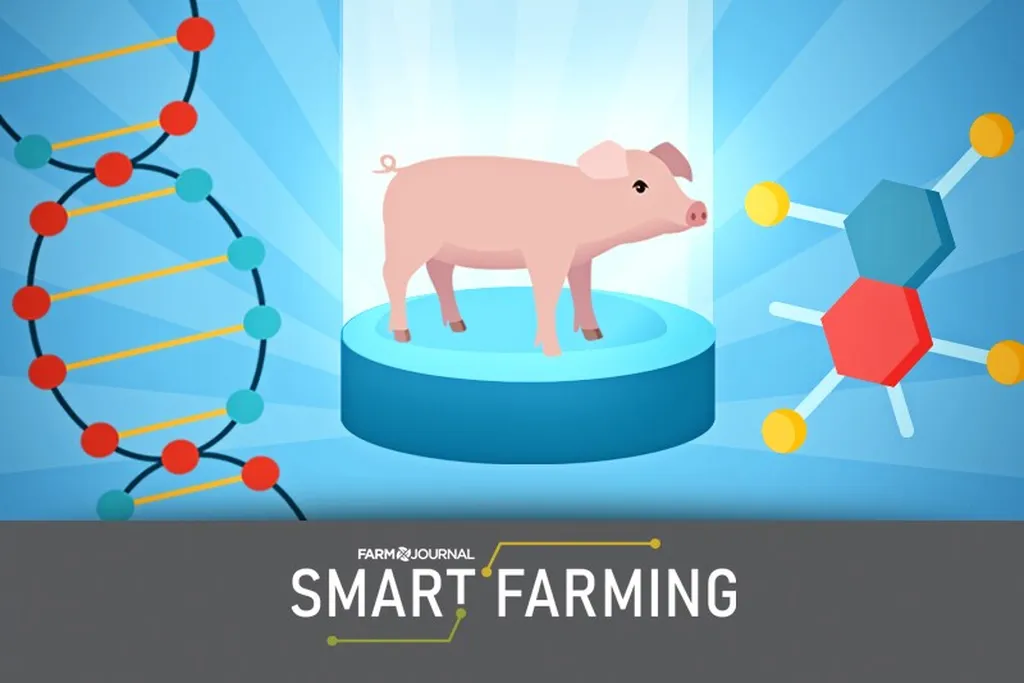In the quest to unravel the genetic secrets behind the distinct meat and carcass traits of different pig breeds, a team of researchers has made significant strides. The study, published in *Animal Bioscience*, utilized advanced bioinformatics techniques to identify key genes that could revolutionize pork production and quality.
The research focused on two pig breeds: the Neijiang, an indigenous Chinese breed known for its unique meat quality, and the Large White, a Western breed renowned for its carcass characteristics. By employing weighted gene co-expression network analysis (WGCNA), the team analyzed transcriptome data from 17 Neijiang and 22 Large White pigs. This method allowed them to construct a comprehensive network of gene interactions, revealing insights into the genetic factors influencing meat and carcass traits.
“Understanding the genetic basis of these traits is crucial for improving pork quality and production efficiency,” said lead author Patrick Kofi Makafui Tecku from the Key Laboratory of Livestock and Poultry Multi-omics at Sichuan Agricultural University. “Our study identified key genes that could serve as potential biomarkers for enhancing breeding strategies.”
The analysis identified 22 co-expression gene modules, with the top modules enriched in processes relevant to carcass and meat quality, such as protein transport. For the Neijiang breed, six key genes—HSPH1, HSPA4, DNAJA4, MRPL3, SEC63, and SRP54—were pinpointed. These genes are involved in biological processes related to mitochondrial function, protein targeting, and other critical functions. For the Large White breed, five key genes—EP300, SETD2, NIPBL, NAT10, and VCP—were identified, playing roles in chromatin organization and morphogenesis.
The commercial implications of this research are substantial. By identifying these key genes, breeders and geneticists can develop more targeted breeding programs aimed at enhancing pork quality. This could lead to more consistent and high-quality pork products, meeting the demands of consumers and the agriculture sector.
“The identification of these genes opens up new avenues for genetic selection and breeding programs,” Tecku explained. “This could ultimately lead to more efficient and sustainable pork production, benefiting both farmers and consumers.”
The study not only sheds light on the genetic mechanisms underlying meat and carcass traits but also paves the way for future research in the field. As the agriculture sector continues to evolve, understanding the genetic basis of these traits will be crucial for developing innovative breeding strategies and improving overall pork quality.
With the findings published in *Animal Bioscience*, the research team hopes to inspire further studies and collaborations in the field of animal genetics. The identification of these key genes is a significant step forward, offering new possibilities for enhancing pork production and quality in the years to come.

